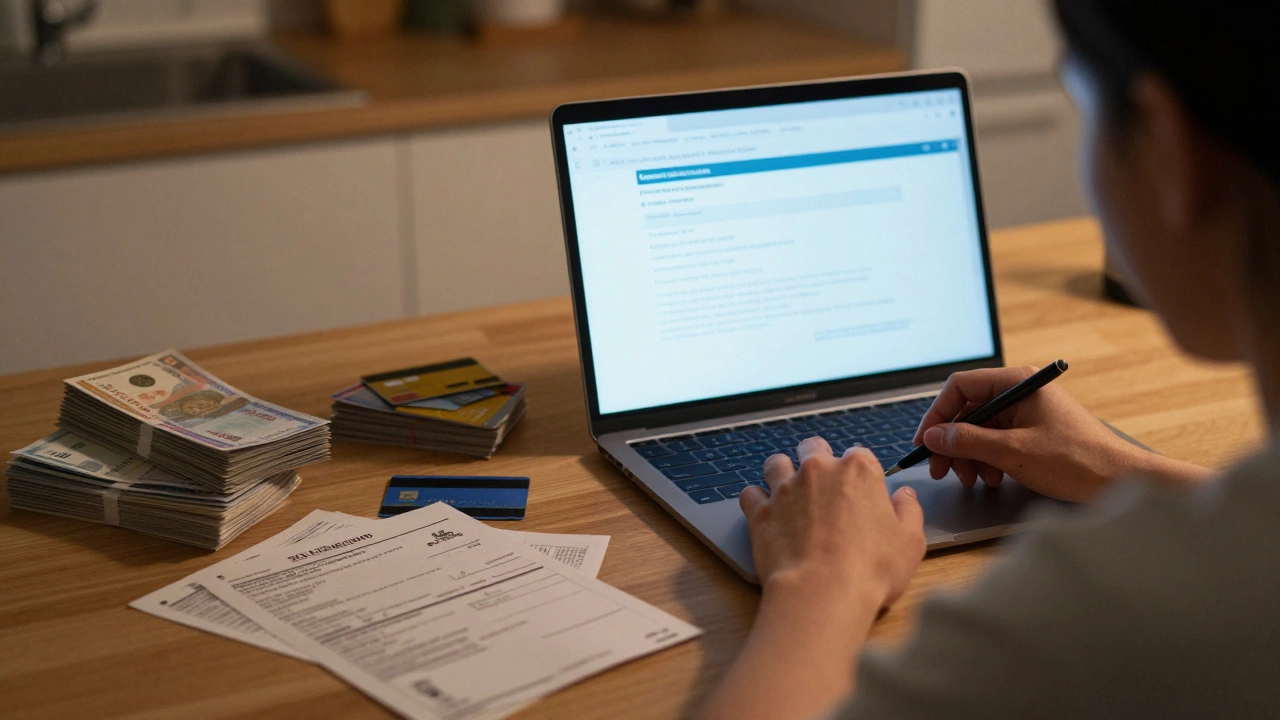Debt Consolidation Loan: What It Is and How It Can Help You
Got a pile of credit‑card bills, payday loans, and a personal loan you can’t keep track of? A debt consolidation loan lets you roll those balances into one monthly payment. It’s not magic – you’re still borrowing money – but the simpler payment schedule can lower your interest cost and free up cash for other goals.
How Debt Consolidation Loans Work
First, you apply for a new loan that’s big enough to cover all the debts you want to combine. If you qualify, the lender pays off each existing balance directly, and you’re left with a single loan to repay. Most lenders offer fixed rates, so your payment stays the same from month to month. That predictability makes budgeting a lot easier.
Interest rates vary widely. Secured loans – those backed by your home or car – usually have lower rates because the lender has collateral. Unsecured loans, which don’t require anything you own, tend to cost a bit more. Your credit score is the biggest factor: higher scores attract better rates, while lower scores may still get you a loan but at a higher cost.
Choosing the Best Debt Consolidation Loan in 2025
Start by checking your credit score. If it’s above 680, you’ll likely qualify for the most competitive rates. Use a free credit‑check service, spot any errors, and dispute them before you apply.
Next, compare offers from at least three lenders. Look at the APR, any origination fees, and the loan term. A longer term lowers your monthly payment but raises the total interest you’ll pay. Aim for a term that balances a manageable payment with the shortest time you can afford.
Don’t forget to read the fine print. Some lenders charge a pre‑payment penalty if you pay off the loan early – that defeats the purpose of saving on interest. Also, ask whether the lender will handle the payoff of your old debts or if you need to do it yourself.
Finally, consider whether a debt consolidation loan fits your overall plan. If you’re still spending more than you earn, consolidating won’t solve the root problem. Use the extra cash from a lower payment to build an emergency fund or pay down the new loan faster.
Quick checklist before you apply:
- Know your credit score and fix any errors.
- Calculate the total amount you need to borrow.
- Shop around for at least three quotes.
- Check APR, fees, and loan term.
- Read the repayment terms for penalties.
When you pick the right loan, you’ll see fewer due dates, lower interest, and a clearer path to becoming debt‑free. It’s not a shortcut, but it’s a solid tool if you use it wisely.

Can I Get a Loan to Pay Off Debt? Here’s How It Really Works in 2025
Can you use a loan to pay off debt? In 2025, debt consolidation loans can simplify payments and lower interest - but only if you stop spending. Learn how they work, who qualifies, and the hidden risks most people miss.

Does Debt Consolidation Hurt Your Credit? What Happens To Your Score
Worried if debt consolidation hurts your credit? This guide breaks down how it affects your score—both the good and the bad—so you know what to expect.





